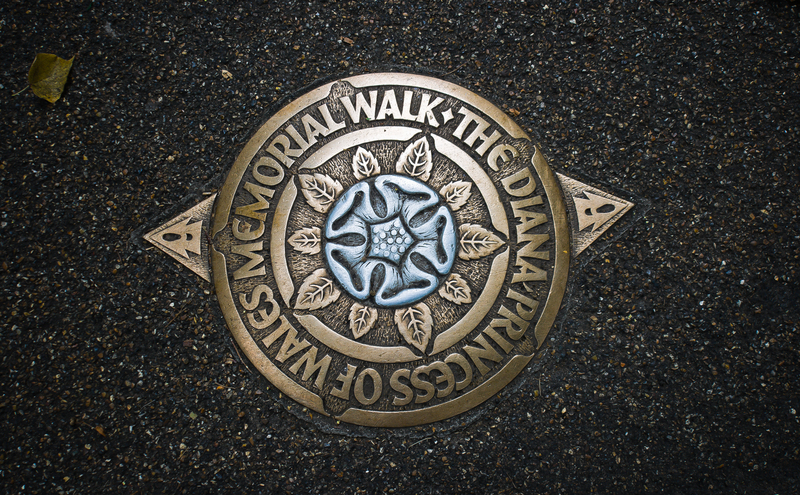Garden Better with These 3 Insightful Weed Control Tips
Posted on 22/08/2025
Garden Better with These 3 Insightful Weed Control Tips
Every gardener knows the struggle: You spend hours cultivating beautiful flowers, nourishing vegetables, or molding your landscape into a work of art, only to find that pesky weeds come to spoil your efforts. But here's the secret--controlling garden weeds doesn't have to be a never-ending battle. With the right strategies, you can manage, reduce, and even prevent weeds from overran your precious garden beds. Read on for three powerful and insightful weed control tips that will help you garden better all season long.
Why Effective Weed Control Matters for Every Gardener
Before jumping into practical solutions, let's understand why strong weed management is so crucial. Weeds can:
- Compete with your garden plants for water, nutrients, sunlight, and space
- Harbor pests and diseases that might spread to your crops or ornamentals
- Lower the aesthetic value of lawns and flower beds
- Increase maintenance time, making gardening less enjoyable
If you're hoping to garden better--whether you have a simple veggie patch or a sprawling backyard oasis--control of garden weeds is essential.

1. Start with Prevention: Smother Weeds Before They Start
Understanding Mulching for Weed Suppression
One of the most efficient weed control techniques is to stop weeds before they ever emerge. The foundation of this is simple: create a barrier that blocks weed seeds from germinating and receiving sunlight.
Mulching is a gardener's best friend for preventing weeds. Here's why:
- Mulch shades the soil and minimizes open spaces where weed seeds can sprout
- It retains soil moisture and regulates soil temperature--benefiting your garden plants
- Over time, organic mulches break down, improving soil quality
Organic mulches (like wood chips, straw, grass clippings, leaves, or compost) are a sustainable choice and add nutrients to your soil as they decompose. Inorganic mulches (such as landscape fabric, gravel, or black plastic) also prevent weeds very effectively, though they don't offer the same soil-building benefits.
Pro Tips for Mulching Effectively
- Apply mulch in a 2-4 inch thick layer for optimal weed blockade
- Keep mulch a couple of inches away from plant stems and trunks to avoid rot
- Refresh or top up mulch once or twice a year as it settles or breaks down
- For pathways or persistent weed-prone areas, try landscape fabric underneath a layer of mulch for extra weed suppression
By integrating mulching into your garden care routine, you'll notice a drastic reduction in weeds, improved soil conditions, and healthier plants--making it easier to control weeds naturally and garden better.
2. Outcompete Weeds with Smart Planting Techniques
Plant Densely, Diversify, and Shade Out Weeds
Did you know that the way you plant your garden can influence how many weeds you have to battle? The principle is simple: The less exposed soil, the fewer weeds will pop up.
Dense planting and the use of ground covers are two extremely effective weed management strategies:
- Fill garden beds with robust, quick-growing plants to crowd out weeds
- Choose low-growing groundcovers like creeping thyme, ajuga, or sweet woodruff for blanketing exposed soil
- Use cover crops (such as clover, vetch, or rye grass) during the off-season to prevent weeds in vegetable gardens
- Practice interplanting--mixing different heights or types of plants to create a multilayered canopy that shades out weed seeds
Succession Planting and Crop Rotation
- Succession planting keeps soil covered year-round, limiting weed opportunity
- Crop rotation changes the growing environment annually, helping disrupt weed (and pest) cycles
Example: Plant lettuce or spinach closely together early in the season, then follow with bush beans as the season progresses. Not only will this optimize your harvest, but you'll also make it harder for unwanted weeds to move in.
Remember, nature abhors a vacuum! Empty garden space invites weeds. Planting strategically keeps your garden lush, productive, and far less weedy.
3. Weed Smarter, Not Harder: Use the Right Removal Techniques
Hand-Pulling and Hoeing: Timing Is Everything
Even with excellent preventive strategies, no garden is completely weed-free. So, when weeds do appear, acting swiftly and effectively is essential.
The best time to remove weeds is when they're young and before they set seed. Mature weeds are harder to pull, have deeper roots, and may scatter thousands of seeds if left untended.
- Hand-pull weeds after rain or watering--the moist soil helps roots come out cleanly
- Use a hoe to cut weeds off just below the soil surface on dry, sunny days. This leaves weeds to dry out and die before they can re-root
- Target annual weeds early. For perennials like bindweed or dandelion, remove as much root as possible to prevent regrowth
Tools to Make Weeding Easier
- Weeding knives or hori-hori tools for prying out roots and taproot culprits
- Stirrup hoes or scuffle hoes for quickly loosening small weeds over larger areas
- Garden gloves to protect your hands, especially with prickly weeds or thistles
Dispose of Weeds Wisely
- Never compost weeds with seeds or invasive roots (like Bermuda grass or bindweed)
- For safe disposal, let them dry out completely in the sun, or bag and discard in the trash if necessary
Weeding can be meditative if you work a few minutes at a time, and by catching weeds before they mature, you'll steadily reduce future infestations. This is the core of a sustainable weed control strategy--one that makes each gardening season easier than the last.
Bonus: Eco-Friendly Weed Control Alternatives
If you're looking to go beyond the basics, consider these natural weed control options that minimize harm to your garden ecosystem:
- Boiling water poured directly on weeds (great for sidewalks and gravel paths)
- Homemade vinegar sprays for annual weeds (note: these are nonselective and can harm other plants--use with care)
- Solarization: Cover soil with clear plastic for several weeks during hot summer months to cook weeds and seeds in the topsoil
Always remember that chemical herbicides should be a last resort, as they can negatively impact beneficial soil life, pollinators, and surrounding plants.
Common Weed Control Mistakes to Avoid
Even seasoned gardeners make errors that can lead to weedy disasters. Here are a few key things to avoid:
- Turning your soil too often, which brings buried weed seeds up to the light
- Allowing weeds to flower and seed, vastly multiplying future problems
- Mulching over existing weeds without first removing them--many will grow straight through!
- Leaving bare soil between growing seasons. Always cover, plant, or mulch

Conclusion: Garden Better with Consistent and Insightful Weed Control
Weeds will always be a fact of life for gardeners, but effective weed management transforms your workload and maximizes the health and beauty of your plantings. Prevention through mulching, outcompeting weeds with strategic planting, and efficient manual removal will put you on the path to a flourishing, low-maintenance garden.
Integrate these three insightful weed control tips into your gardening habits and watch your garden thrive like never before! For more gardening advice, inspiration, and eco-friendly tips, keep exploring our resources and let us help you garden better every season.
Frequently Asked Questions: Garden Weed Control
What is the most eco-friendly way to control weeds?
Use organic mulches, dense planting, and hand-removal as your first line of defense. Avoid synthetic chemicals whenever possible for a more eco-friendly garden.
Are all weeds bad for the garden?
No--not every weed is a villain. Some weeds actually improve soil or offer habitat for pollinators, but most can quickly become problematic if left unmanaged. The key is balance!
How often should I weed my garden?
Regular tending--ideally once a week--prevents weeds from getting out of hand and makes each session much easier and faster.
Ready to garden better? Start implementing these insightful weed control tips and enjoy the rewards of a healthier, happier, and more beautiful garden.

